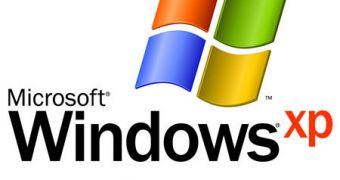Windows XP is dying. Microsoft has said it a few times before, and it is saying it now once again. Windows XP is old and you should move away from it.
In two years, the Redmond-based software giant will put an end to Windows XP’s support life, and it is urging customers to migrate to a newer, modern operating system.
In fact, it is pushing them towards the Windows 7 platform, which is only three years old, and which has a lot to offer still, unlike the over a decade-old OS, which is almost three generations behind.
Those who remain on Windows XP expose themselves to unnecessary risks, Microsoft says. They should plan and implement a migration to Windows 7.
A recently published whitepaper from analyst firm IDC, sponsored by Microsoft, is meant to offer a better understanding of some of the benefits customers migrating to Windows 7 will have.
The study is based on data gathered from nine large organizations who deployed both Windows XP and Windows 7, and tried to asset the costs involved in both roll-outs.
On the user side, the costs were measured in time spent on cleaning systems of viruses, on rebooting, downtime, and help requests needed.
Cost components for IT included involved upgrading PCs, activities related to security, apps deployment, patch management, help desk service, and more.
In the end IDC concluded that “organizations that continue to retain a Windows XP environment not only are leaving themselves exposed to security risks and support challenges, but also are waiting budget dollars that would be better used in modernizing their IT investments.”
While Windows XP-based solutions might still work, they do result in great amounts of money being spent on support. Overall, these costs are five times higher than they would be when operating Windows 7 systems.
Moreover, the whitepaper shows that the support for Windows XP is requiring more money each day that passes by. In the fourth year of continuing to use Windows XP, the IT labor costs grow by 25 percent, while user productivity draws a 23 percent higher cost.
In the fifth year, both grow further, the former by an additional 29 percent, and the latter by up to 40 percent more.
Through Windows 7, companies can benefit from increased support for a wider range of technologies, faster and better performing hardware, as well as a new UI.
“By proactively encouraging the use of modern technology, the IT department is seen as being interested in improving the productivity of users,” IDC notes.
“End users feel empowered to accomplish their jobs with modern tools that improve their productivity and eliminate wasted time resulting from poorly-performing old technology, unnecessary application crashes and operating system reboots.”
According to the research firm, companies that migrate from Windows XP to Windows 7 see a return of investment of over 130 percent over a three-year period, in addition to enjoying more hours of user productivity.

 14 DAY TRIAL //
14 DAY TRIAL //